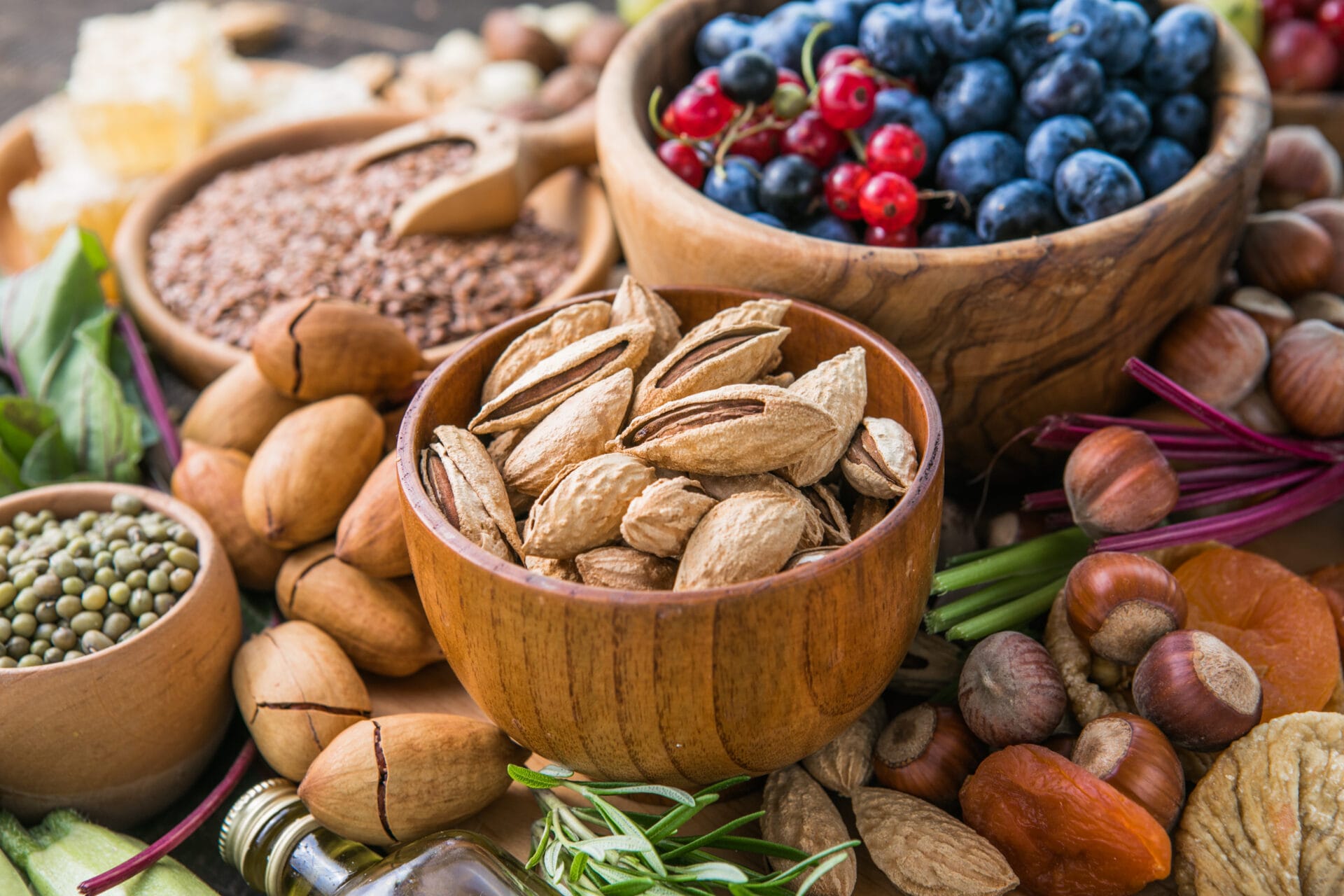In a world where our busy lifestyles often lead to inadequate nutrition, food supplements have emerged as a powerful ally in supporting and enhancing our health. These supplements, rich in essential vitamins, minerals, and other nutrients, play a crucial role in fortifying our bodies and promoting overall well-being. This article explores the diverse ways in which food supplements can strengthen and heal, providing insight into their benefits and the science behind their effectiveness.
Consume a variety of healthy foods
Certain meals can help people recover from accidents or sickness. According to research, meals strong in vitamin A, vitamin C, zinc, iron, vitamin E, and protein aid in healing and immune system strengthening. To reap the maximum nutritional benefits, consume a variety of healthful meals in the appropriate proportions.
What foods include a lot of vitamins, minerals, and protein?
The following foods provide vitamins, minerals, and proteins that aid in the healing and strengthening of your immune system:
- Meat, fish liver, apricots, cantaloupes, carrots, cheese, eggs, and leafy green vegetables are high in vitamin A.
- Vitamin C is present in liver, mangos, milk, pumpkin, sweet potatoes, citrus fruits, melons, broccoli, and Brussels sprouts. Vitamin D is present in milk, egg yolks, liver, and fish liver oils.
- Eggs, fish, beans, liver, pork, milk, potato skins, strawberries, and peppers are all high in zinc.
- Protein: found in dairy products, eggs, beans, meat, poultry, and fish, protein aids in muscle building and maintenance, tissue healing, and immune system health. Collagen is a protein present in animal connective tissue and skin. It is mostly made from hog skin, although it may also be made from chicken and fish.
- Iron may be found in legumes, nuts, and red meat.
- Seeds, nuts, vegetables, oils, peanut butter, and meat all contain vitamin E.
- B1, B2, K, Niacin, B12, Pantothenic Acid, and Biotin: found in liver, kidney, and other animal products, but also found in grains, vegetables, legumes, and dairy.

Bridging Nutritional Gaps
Many individuals struggle to meet their nutritional needs through diet alone due to hectic schedules, dietary restrictions, or insufficient access to nutrient-dense foods. Food supplements act as a bridge, filling the nutritional gaps that may otherwise lead to deficiencies. By providing essential vitamins and minerals, these supplements contribute to the proper functioning of bodily systems, supporting everything from immune function to energy production.
Immune System Boost
A robust immune system is vital for warding off illnesses and promoting overall health. Food supplements, particularly those containing vitamin C, vitamin D, and zinc, play a pivotal role in boosting immune function. These nutrients enhance the production and activity of immune cells, helping the body defend itself against infections and diseases. Regular supplementation can be especially beneficial during times of increased stress or seasonal changes when the immune system may be more vulnerable.
Joint and Bone Health
As we age, maintaining strong and flexible joints becomes increasingly important. Food supplements like calcium, vitamin D, and omega-3 fatty acids contribute to optimal bone health and can alleviate joint discomfort. Calcium supports bone density, vitamin D aids in calcium absorption, and omega-3 fatty acids have anti-inflammatory properties that benefit joint health. Together, these supplements form a powerful trio for the maintenance of a healthy skeletal system.
Cognitive Function and Mental Well-being
The connection between nutrition and mental health is a growing area of research, and food supplements have emerged as potential contributors to cognitive function and mental well-being. Omega-3 fatty acids, for example, are essential for brain health and have been linked to improved mood and cognitive performance. Additionally, certain B vitamins play a role in neurotransmitter synthesis, influencing mood regulation. Integrating these supplements into one’s routine may support mental clarity and emotional balance.
Athletic Performance and Recovery
For those engaged in regular physical activity, food supplements can be valuable in enhancing athletic performance and expediting recovery. Branched-chain amino acids (BCAAs), creatine, and electrolytes are commonly used supplements that support muscle growth, improve endurance, and aid in faster recovery after intense workouts. These supplements help replenish nutrients lost during exercise and promote the repair and rebuilding of muscle tissues.

Managing Stress and Mental Well-being
The demands of modern life often lead to high levels of stress, which can take a toll on both mental and physical health. Adaptogenic herbs such as ashwagandha and Rhodiola rosea, along with B-complex vitamins, are popular supplements known for their stress-reducing and mood-stabilizing effects. These supplements can help the body adapt to stressors, promoting a sense of calm and mental well-being.
Balancing Hormones with Nutritional Support
Hormonal imbalances can affect both men and women, leading to a range of symptoms such as fatigue, mood swings, and reproductive issues. Certain food supplements, including omega-3 fatty acids, vitamin D, and herbal supplements like evening primrose oil, can help support hormonal balance. This support is particularly relevant for women experiencing menopause or individuals with conditions affecting hormonal health.
Promoting Cardiovascular Health
Heart health is a top priority, and certain food supplements can contribute to a healthy cardiovascular system. Omega-3 fatty acids found in fish oil, for example, are known to support heart health by reducing inflammation and improving cholesterol levels. Coenzyme Q10 (CoQ10) is another supplement that supports overall cardiovascular function by aiding in energy production within cells.
How do you know what is in the supplements and if they’re Halal?
ISA has a methodology in place to evaluate products and sources for Halal compliance in the burgeoning sector of vitamins, whole food supplements, proteins, and minerals. Products will be certified and can bear the ISA Halal label after compliance is achieved. Supplements such as vitamins, minerals, and protein powder may necessitate extra caution to ensure Halal compliance. ISA ensures that all certified goods fulfill worldwide Halal standards, from protein bars to nutritious shakes, as well as artificial flavors, additives, and colors.
Food and supplements can help you improve your immune system and heal faster. ISA certification assures that the contents are Halal in substance, processing, packaging, and storage for the millions of individuals who ingest supplements.
In conclusion, food supplements offer a holistic approach to health, addressing various aspects of well-being from immune support to cognitive function and beyond. While it’s important to emphasize that supplements are not a substitute for a balanced diet, they can be a valuable addition to support our bodies in the face of modern challenges. As with any health-related decisions, it’s advisable to consult with healthcare professionals before incorporating new supplements into one’s routine to ensure personalized and safe usage. By understanding the potential benefits of food supplements, individuals can empower themselves to take proactive steps towards a healthier and more resilient life.

